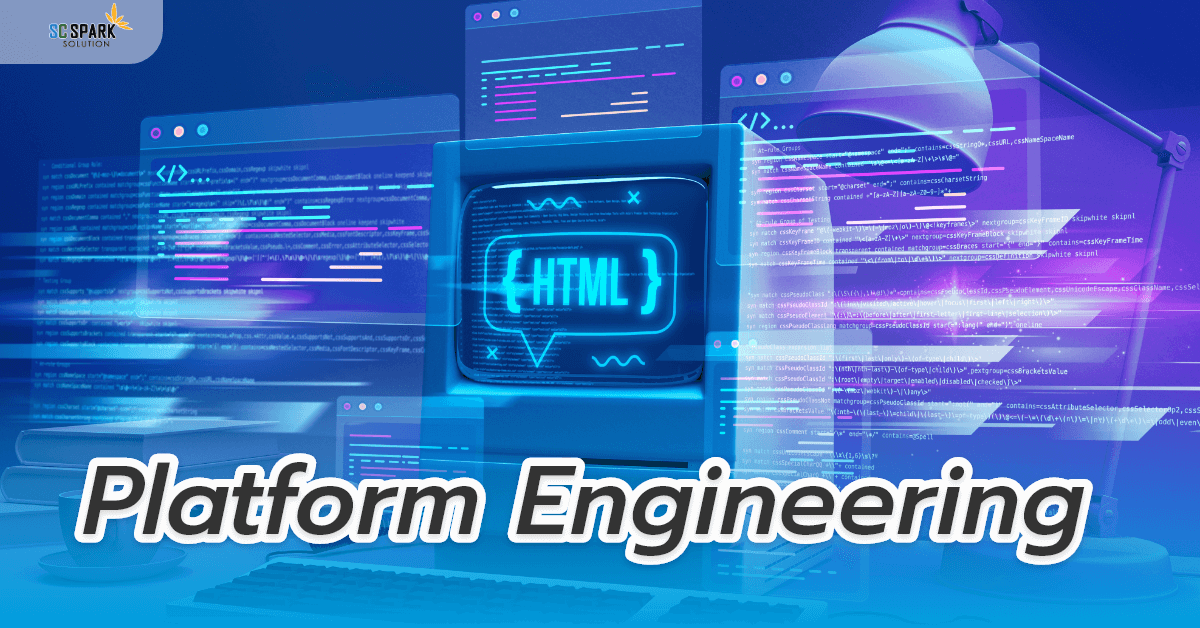Platform Engineering
Building the Foundation for Digital Transformation
In the rapidly evolving landscape of digital technologies, businesses are constantly seeking ways to enhance their efficiency, agility, and scalability. Platform engineering has emerged as a key enabler of digital transformation, providing organizations with robust foundations for building and deploying applications. In this article, we explore the concept of platform engineering, its significance, and how it acts as a catalyst for innovation in the digital era.
Defining Platform Engineering
Platform engineering involves the design, development, and maintenance of a technology platform that serves as the foundation for building and running applications. This platform encompasses a range of services, tools, and infrastructure components that facilitate seamless development, deployment, and management of applications across an organization.
Key Components of Platform Engineering
- Infrastructure as Code (IaC)
Platform engineering often involves the implementation of Infrastructure as Code, allowing teams to automate the provisioning and management of infrastructure. This enables rapid scalability, consistency, and reproducibility of environments.
- Containerization and Orchestration
Containers, encapsulating applications and their dependencies, have become integral to platform engineering. Container orchestration tools like Kubernetes simplify the deployment and management of containerized applications, providing scalability and resilience.
- Microservices Architecture
Platform engineering encourages the adoption of a microservices architecture, breaking down applications into smaller, independently deployable services. This approach enhances agility, accelerates development cycles, and facilitates easier maintenance.
- Continuous Integration/Continuous Deployment (CI/CD)
CI/CD pipelines automate the process of testing, building, and deploying applications. Platform engineering emphasizes the establishment of robust CI/CD pipelines to ensure rapid and reliable software delivery.
- DevOps Practices
Platform engineering aligns closely with DevOps principles, fostering collaboration between development and operations teams. Automation, continuous monitoring, and feedback loops are integral to creating a DevOps culture within the platform engineering framework.
- Scalable and Resilient Infrastructure
Platform engineers design infrastructure that can scale dynamically to meet varying workloads while ensuring high availability and resilience. This involves implementing auto-scaling, load balancing, and redundancy strategies.
- Monitoring and Analytics
A comprehensive platform includes monitoring and analytics tools to gain insights into application performance, detect anomalies, and facilitate proactive issue resolution. This data-driven approach is crucial for maintaining optimal system health.
Significance of Platform Engineering
- Agility and Time-to-Market
Platform engineering accelerates the development process, reducing time-to-market for new applications and features. The ability to quickly iterate and release updates is a competitive advantage in today’s fast-paced business environment.
- Scalability and Flexibility
A well-designed platform enables organizations to scale their applications effortlessly to handle increased workloads. It also allows for flexibility in choosing technologies and adapting to changing business requirements.
- Cost Optimization
Through automation and efficient resource utilization, platform engineering helps organizations optimize infrastructure costs. Cloud-native approaches and containerization contribute to cost-efficient operations.
- Improved Collaboration
By fostering a DevOps culture and providing shared tools and processes, platform engineering promotes collaboration between development and operations teams. This collaboration enhances communication, reduces silos, and accelerates problem resolution.
Challenges and Considerations
- Complexity
Building and maintaining a robust platform can be complex, requiring expertise in various technologies. Organizations must invest in skilled professionals or consider leveraging managed services to mitigate this challenge.
- Security Concerns
As platforms host critical applications and data, security is a top concern. Implementing robust security measures, regular audits, and staying informed about potential vulnerabilities are crucial aspects of platform engineering.
Conclusion
Platform engineering is the bedrock of digital transformation, providing organizations with the tools and practices needed to thrive in the modern technological landscape. As businesses continue to evolve, investing in a well-engineered platform becomes imperative for staying competitive, innovative, and responsive to changing market demands. The journey of platform engineering is not just about building infrastructure; it’s about laying the groundwork for a future where technology seamlessly aligns with business objectives, driving growth and success.
For those of you who want to make an E-Commerce app, a shopping app or a Delivery app, we recommend SC-Spark Solution, an app making company. experienced With direct experience from Silicon Valley, being a company that develops more than 100 applications around the world, both custom and ready-made for you to choose from. If anyone is interested in making mobile applications or websites, you can contact here
Contact us at
Facebook : SC-Spark Solution บริการทำแอปพลิเคชั่น
“Nothing is impossible”







